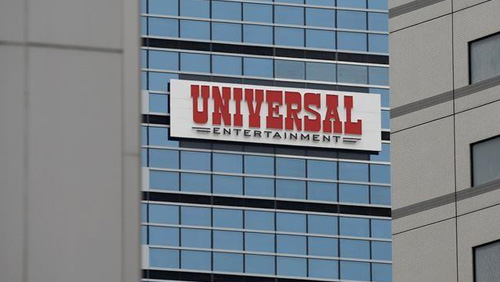To raise the name recognition of Okada Manila, Japanese gaming conglomerate Universal Entertainment Corp. is planning to list Tiger Resort, Leisure, and Entertainment, Inc. (TRLEI) on an unnamed stock market in the near future.
 Universal announced its future plans for Okada Manila on Monday as it reported its first quarter earnings. However, the Japan-based company did not mention where it plans to list TRLEI.
Universal announced its future plans for Okada Manila on Monday as it reported its first quarter earnings. However, the Japan-based company did not mention where it plans to list TRLEI.
The firm initially considered a backdoor listing for TRLEI when Japanese casino mogul Kazuo Okada was still Universal’s chairman. In October 2017, it was reported that Universal considered at least three publicly listed companies in the Philippines into which they could infuse Okada Manila’s business.
“The Universal Entertainment Group is preparing to take public Tiger Resort, Leisure and Entertainment, Inc., the core company in the Group’s Casino Resort Business, in about two years to accelerate its growth and raise its name recognition,” Universal said in a statement.
Aside from an IPO, Universal said that it’s also planning the expansion of the integrated resort’s attractions and amenities, including opening a spa for local high rollers in the second quarter of 2018 and constructing more hotel guest rooms.
Universal believes that Okada Manila will continue to attract a larger number of guests from China, South Korea and other Asian countries.
Okada Manila, located at the Philippine Amusement and Gaming Corporation’s Entertainment City gaming zone, is expected to be fully completed in December 2019. Universal is optimistic that the full-scale operations of a VIP casino will provide a bigger contribution to its annual sales.
“Okada Manila is increasing its share of this casino market by setting itself apart from competitors in terms of the volume of facilities and the quality of services,” the company said.
Meanwhile, Universal reported net income of JPY181.40 billion (US$1.65 billion) in the first three months of the year, while the company’s consolidated net sales for the three months ending in March 2018 was at JPY19.55 billion ($177.82 million).
The Japan-listed company did not provide year-on-year comparisons after it decided last year to change its fiscal year-end to December 31.